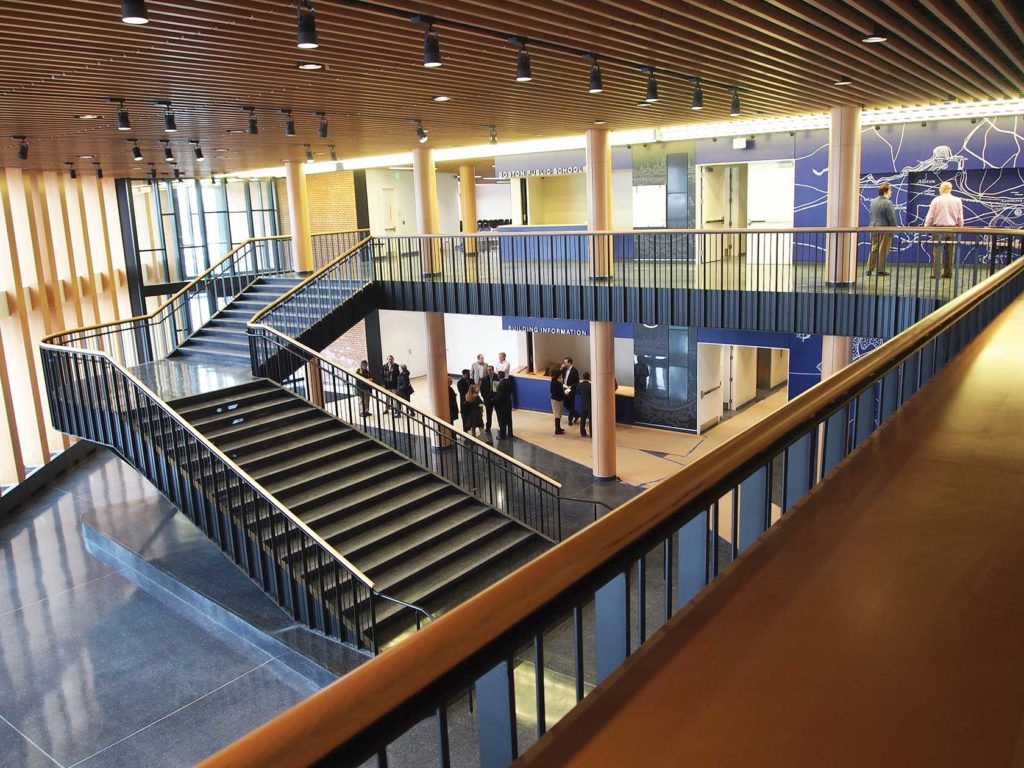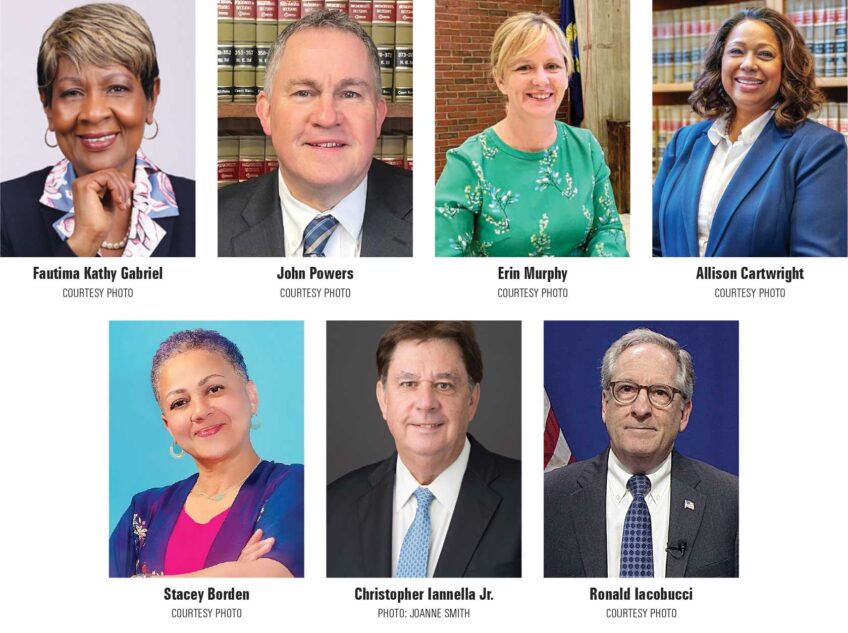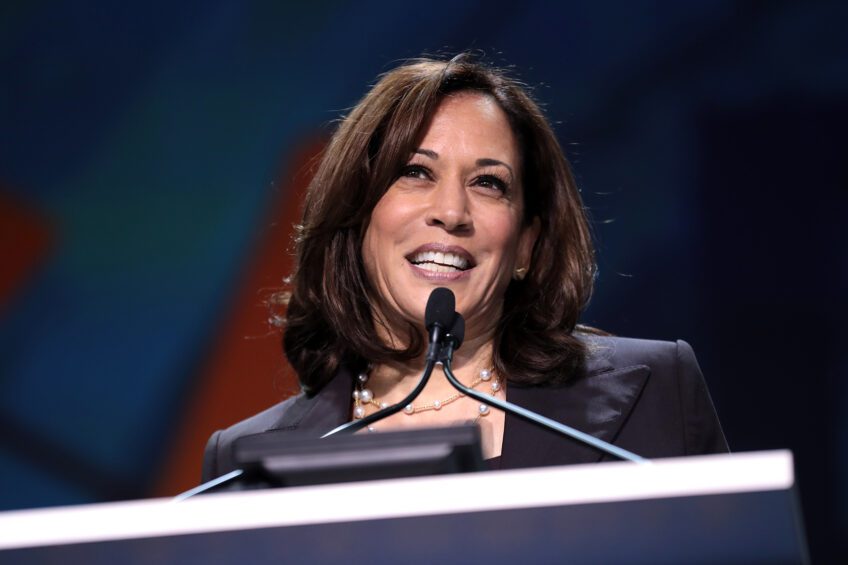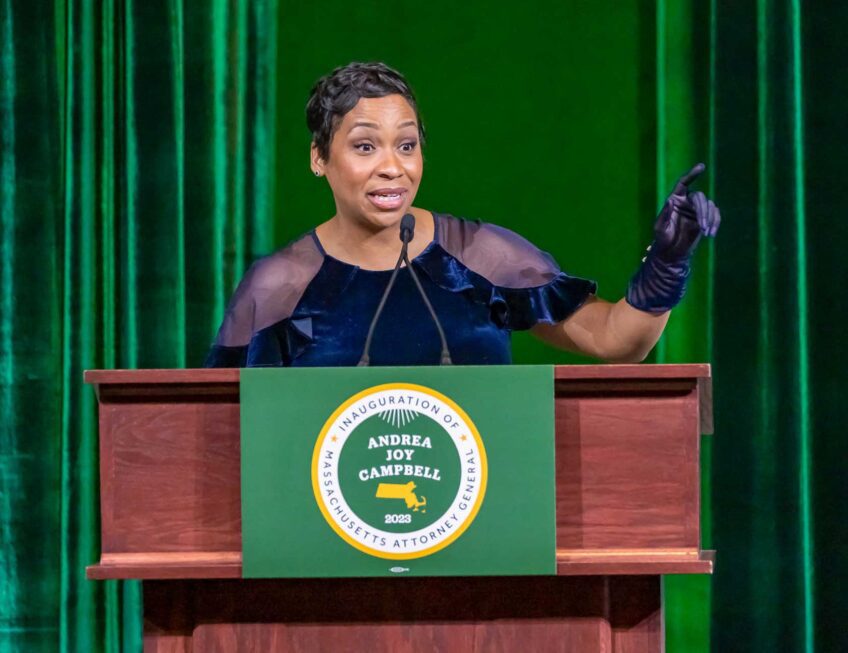
When Boston Public School teacher Neema Avashia watched the school committee give away the open green space beside her John W. McCormack Middle School in Dorchester for development despite the pleas of students, teachers and neighbors who used it for recreation, she suspected the days of the mayor-appointed school board might be drawing to a close.
“I don’t think it’s a stretch to say that that fieldhouse vote really did put a nail in the coffin of the appointed school committee,” Avashia told GBH News of the August 2020 decision. “Because it felt really dirty and it didn’t just feel dirty to people at our school — it felt dirty to people in the city of Boston.”
That vote, Avashia said, was emblematic of how an unelected body, without an electorate to answer to, can flout community concerns.
Avashia is part of the Boston Coalition for Education Equity, the advocates who delivered an overwhelming affirmative response to the November ballot question asking whether the Boston School Committee should revert back to an elected body.
The coming debate over the makeup of the school committee will play out in full in 2022. The action will be between Boston Mayor Michelle Wu, who favors the so-called hybrid model, which would mix elected members with her appointees and the incoming City Council.
The contest will be a test of political will and maneuver. The council would face difficulty sending a home rule petition to Beacon Hill without Wu’s support.
In November, nearly 80% of Boston’s voters — more than the 64% who sent Wu to the mayor’s office — supported a return to an elected school committee.
Throughout her campaign, Wu consistently championed a hybrid committee.
“The [November] question was as direct as it could be,” said Ricardo Arroyo, Hyde Park-Mattapan City Councilor and one half of the duo who brought the question to the ballot. “When you get 80%, it’s very difficult for me to say that the people of Boston didn’t make their opinions known on that.”
At the same time, Arroyo said, a home rule petition like the one he is finalizing needs the mayor’s blessing to advance from City Hall to the statehouse.
The committee first became an appointed body in 1991, two years after an advisory ballot question passed by a slim margin and triggered the change. Boston is the only municipality in the state where voters do not elect their school committee.
Earlier this month, Arroyo and At-Large Councilor Julia Mejia kicked off the public engagement process for finalizing the petition to reorganize the Boston School Committee. The hearing lasted for nearly three hours, with dozens of people tuning in to urge the council to fulfill the mandate spelled out by the November results.
But, Arroyo said, that petition must clear the full council, the mayor, the Legislature and the governor in order to be enacted.
“If the administration won’t send it to the [state] house, then it’s not happening,” he said, pointing to the likelihood of a “back and forth” between the mayor, the new City Council and the members of the public who show up to advocate on the matter.
Arroyo’s petition will need to be redrafted in the next council term, but for now, it gradually moves the existing seven-member, appointed school committee to a fully elected, 13-member body by 2026, with a two-year hybrid term in between. It also gives voting power to the committee’s student member.
“I think if we do something collaboratively, if the willpower is there, if the community voices are there, if the councilors are there, I do believe that we’ll get something productive and something that everybody is happy with,” Arroyo said.
Most of the elected school committee supporters interviewed for this story indicated they would be disappointed, but not devastated, if Wu insisted on preserving one, or even a couple appointed seats on the school committee.
“I cast my vote for Michelle Wu knowing that we disagreed on this issue and knowing that we’d be advocating to move her towards a fully elected school committee after she was elected,” said Lisa Green, chair of Boston Coalition for Education Equity. “So that’s what our coalition plans to do over the next several weeks.”
Green pointed to former President Barack Obama’s evolving stance on the issue of same-sex marriage. Obama, who was first elected in 2008, did not voice full support for it until 2012.
“As advocate, you’re never going to be in perfect alignment with a candidate. You make your best choice on Election Day knowing that you’ll have to continue to put pressure on them about issues that you care deeply about,” Green said.
“With an elected school committee, our hope is that those elected representatives will actually have a constituency they’re representing…” she added, “and they’ll have an incentive to reach out to the community and hear what’s of interest to them because they want to be reelected next time.”
“As a parent I’m definitely fed up with experimental governance structures with the Boston School Committee,” said Kristin Johnson of Jamaica Plain, one of the BPS parents behind the ballot question. “I think we really know that elected school committees are the gold standard.”
Johnson said she agrees with “a lot” of Wu’s vision for the schools, but she ultimately would prefer a fully elected body.
Former Boston School Committee student member Khymani James agreed, echoing the concerns of officials who make policy without having to be accountable to voters.
“I think that Mayor Wu, while she may have her own personal opinions on the structure of the school committee, she needs to put that aside and she needs to listen to what the voters want,” he said. “If question 3 said ‘do you support a hybrid school committee’ and a majority of constituents voted ‘yes,’…I wouldn’t have a problem with that … but in this case, a majority of constituents voted to have an elected school committee.”
James served on the school committee from Sept. 2020 to March 2021. He resigned, citing in a Twitter thread, “blatant disrespect,” “adultist rhetoric” used toward him and an overall structure he found “ineffective” and “harmful to the progressive agenda of students.”
He said of his term that it felt as though the goals and the policies he advocated for were in conflict with those of his appointed colleagues because “there wasn’t any vertical accountability between the people and my fellow members on the school committee at the time.”
James added his view that student members should be on par with adult members in all aspects, including pay, a vote and time to weigh in on items at public meetings.
Wu declined an interview with GBH News for this story, but her team provided a statement signaling that she intends to insist on reserving multiple seats for mayoral appointments.
“I will work with Councilors through the home rule petition process that colleagues have already begun,” Wu’s statement said. “While I continue to support retaining some appointed seats to ensure full representation of Boston’s diversity and specific subject matter expertise, I am eager to work with those pushing for greater democracy in our school governance through inclusion of elected members to the school committee.”
Avashia, who made a cameo in Wu’s mayoral campaign announcement video, said even though it is an area where she finds herself on the other side of the mayor, she would not cease to support Wu over a disagreement on school committee structure.
“I think, for me, what the vote tells me is what I already knew: people are not okay with the current way of doing things,” Avashia said, adding that it’s important the majority of school committee seats be elected through a democratic process. “That doesn’t mean that we have to jump to another way without exploring and playing out all the possibilities.”
“I don’t know what the right model is,” she continued. “I think about the [school committee] question as the opportunity to have a really serious conversation in our city about governance.”
Saraya Wintersmith covers Boston City Hall for GBH News.






